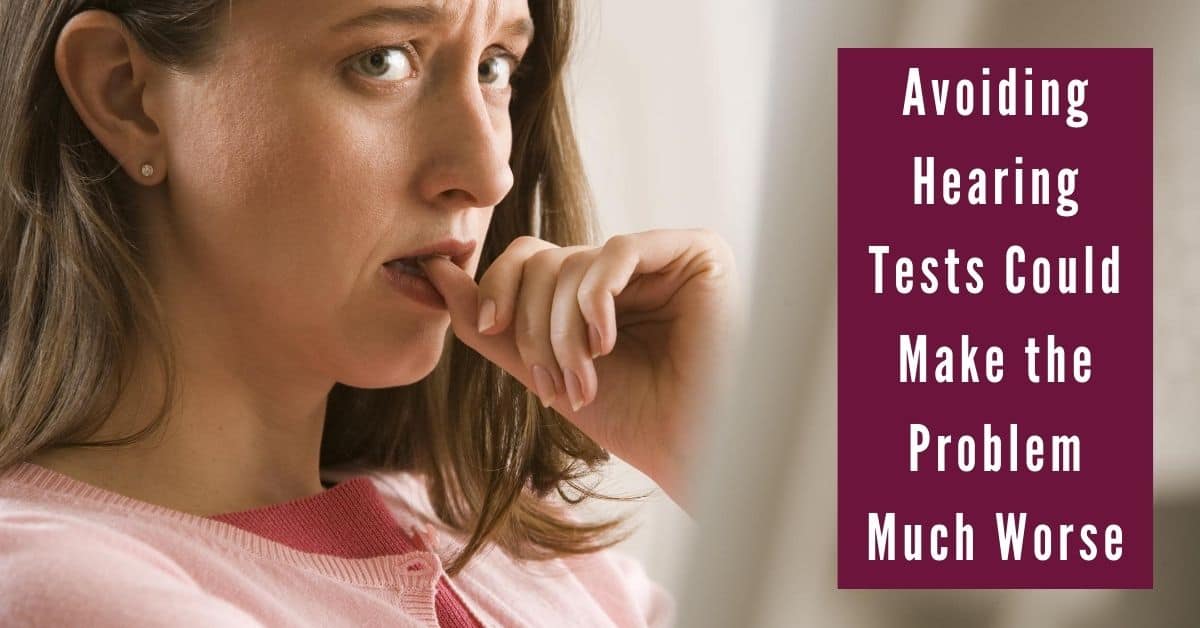Most of us have experienced not immediately dealing with a health concern, hoping that if we avoid it long enough, it will subside. This can be particularly harmful if you are experiencing a chronic medical condition like hearing loss. Because hearing loss often happens gradually, it can be overlooked and ignored for quite some time. Gradual impairment combined with the common misconception that it is not a serious threat to one’s health, can prevent people from addressing hearing loss. Not only can this worsen the actual impairment, but it can contribute to the development of additional medical conditions including dementia, personal injuries, as well as unemployment.
Impact of Hearing Loss
Hearing loss is a chronic health condition that is permanent, and if left untreated, it can significantly impact all aspects of one’s life. Impaired hearing restricts the ability to absorb and process sound which:
– Strains communication: people who navigate impaired hearing can experience tinnitus which is a buzzing or ringing noise in one or both ears, sounds are muffled, frequently needing others to repeat themselves or speak loudly and/or slowly, difficulty hearing especially in environments with background noise etc. These symptoms make it challenging to follow conversations. People may try to read mouths, nonverbal communication, and/or need to move to a quieter area to have a conversation. This can lead to frustrating interactions, miscommunication, and missing important information.
– Social withdrawal: as people overextend themselves in trying to hear, this can cause serious fatigue. Conversations can feel like more work than pleasure, leaving people drained. This can lead to the desire to avoid conversations and social interaction altogether. People may skip out on gatherings, social activities, and spend less time with family and friends. Social withdrawal impacts relationships, creating distance and tension.
– Overall health decline: strained communication, isolation, and impacted relationships affects mental, social, and physical health. Social withdrawal can contribute to depression, anxiety, and loneliness. One may be less physically engaged which reduces energy and stimulation needed for the body to be healthy.
These conditions can worsen if hearing loss is not treated. It can also lead to developing other chronic medical conditions like dementia.
Hearing Loss & Dementia
Research shows that there is a link between hearing loss and dementia. Dementia is another chronic health condition that is characterized by cognitive decline: memory loss, reduced ability to problem solve, make decisions, concentrate etc. Several studies have revealed that hearing loss increases the risk of developing cognitive decline. Also showing that the more severe the hearing loss, the greater the risk is of cognitive impairment. In a significant 2019 study, researchers investigating this link found that cognitive decline was:
- 30% higher among people with mild hearing loss
- 42% higher among people with moderate hearing loss
- 54% higher among people with severe hearing loss
Researchers suggest that hearing loss results in parts of the brain that aren’t utilized anymore – the parts responsible for how we hear. This inactiveness (of brain cells, nerve pathways etc.) impacts overall cognitive function and the capacity to perform cognitive tasks.
Treating Hearing Loss
Identifying and addressing hearing loss is critical to maintaining your overall health. Treating hearing loss begins by scheduling an appointment to have your hearing assessed. Conducted by a hearing healthcare specialist, hearing tests involve a noninvasive process that measures your hearing ability in both ears. This happens by being guided through sounds played at different pitches and volume as you indicate what you can hear. This establishes any impairment, the degree, and specific type of hearing loss you may be experiencing.
Fortunately, there are effective ways that hearing loss is treated. The most common treatment is hearing aids which are small, electronic devices that absorb, amplify, and process sound. This drastically improves one’s ability to hear and navigate the many environments you move through. Similar to most electronics today, hearing aids have experienced much innovation. There is such a wide-range of options that include various features and technologies designed to seamlessly integrate the device in your everyday life.
Treating your hearing loss strengthens your communication, improves relationships, and reduces your health risk. This supports a better quality of life and general well-being! Contact us today to schedule a consultation.

